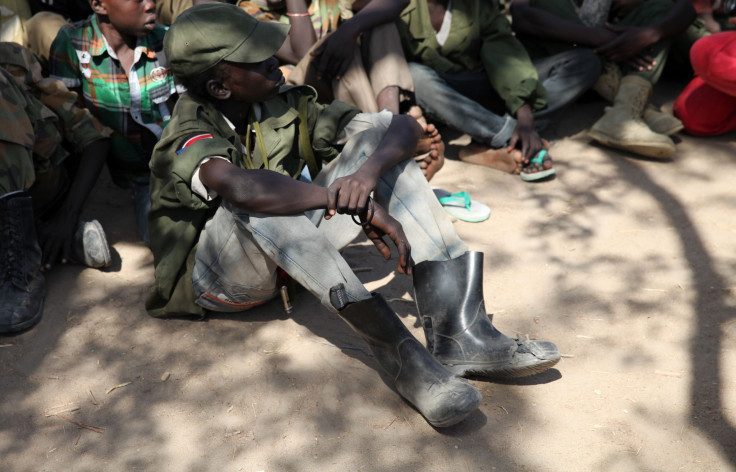South Sudan Kidnapping: At Least 89 Boys Abducted By Armed Group During Exams

At least 89 boys, some as young as 13 years old, were kidnapped by an armed group in a troubled area in the northern region of South Sudan Saturday, according to the United Nations Children’s Fund, or Unicef. The kidnappers surrounded the town of Wau Shilluk and searched it house by house, abducting the boys as they were taking school examinations, local residents told the U.N. group, which condemned the attack “in the strongest terms.” The armed faction had not been identified as of Saturday at 10:30 a.m. EST.
The boys could be forced to fight in South Sudan’s ongoing armed conflict, a common practice in an area beset by internal disputes for decades. Jonathan Veitch, Unicef’s representative in South Sudan, alluded to that possibility in a statement, saying the “recruitment and use of children by armed forces” was illegal and destroyed families.
South Sudan is the world’s newest country, founded in 2011 after splitting from Sudan in the wake of decades of brutal civil war. Peace was short-lived, as fighting escalated into a civil war in late 2013 between South Sudan’s Dinka majority and Nuer minority groups in the north of the nation.
The conflict began five months after President Salva Kiir, a Dinka person, dismissed the entire cabinet of Vice President Riek Machar, a Nuer person. Kiir accused Machar of seeking to overthrow him in a coup, but Machar said Kiir was attempting to establish a dictatorship in South Sudan. Machar vowed to challenge Kiir’s authority.
Fighting is largely concentrated around Malakal, the capital of South Sudan’s Upper Nile state. The U.N. has estimated that almost 2 million of South Sudan’s 11.5 million people have been displaced by the latest war, according to the Independent. (Read more about Sudan’s long history of ethnic conflict here, via Peace Direct’s Insight on Conflict.)
In addition to being a newly created country, South Sudan is demographically a young country as well. A little more than 45 percent of South Sudanese are under the age of 14, and only 5.3 percent of them are over the age of 54, according to the Central Intelligence Agency. The median age in South Sudan is a little less than 17, and, with an annual population growth rate of 4.12 percent, the third-highest in the world, that median age will likely continue to drop.
© Copyright IBTimes 2025. All rights reserved.






















